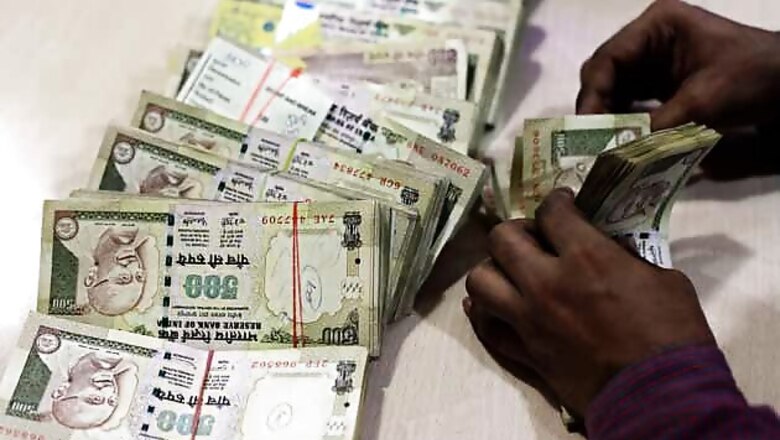
views
New Delhi: As the world braces for a probable Greek exit from the Eurozone as part of the latest development in the Eurozone sovereign debt crisis, it is prudent to take stock of the situation and of the effect it might have on India. It is only wise to be prepared for the worst after the unsavoury experience of 2008 and 2009 during which many professionals were laid off in different parts of the country though the economy was not significantly affected.
The resilience of the Indian economy is very often cited by many in advocating the 'India is insulated from the Eurozone crisis' theory. In my view, that is a myopic view. The 2008-09 global meltdown was a fallout of corporate greed, malpractices and lack of government control. Banks and companies collapsed for their own fault. While the band-aid came in the form of government bail-outs or, in simple terms, socialising private losses, one has to bear in mind that we are no longer looking at the prospect of failing companies or banks. We are looking at prospects of collapse of countries altogether.
Greece is not unique. Although Ireland, Greece and Portugal, the worst-affected among the Eurozone countries, account for just 6 per cent of the Eurozone's GDP, throw in Spain and Italy with the lot and the picture looks very different. Once you Add the virtual no growth in French, UK and Dutch economies and the negligible growth in German GDP, the big picture begins to emerge.
If Greece exits Eurozone, the Euro area national central banks and the European Central Bank would stomach big losses, threatening their solvency. Greek debt to these entities total almost 57 billion Euro. There will be a sudden flight of capital from Spanish and Italian banks. Both Madrid and Rome have repeatedly issued fresh government bonds with the promise of high returns (ranging between 5 and 7 per cent). With their economies supposed to experience de-growth (and officially Spain is in recession now), pre-mature exits from the bonds will be the most obvious panic reaction as most of these bonds are held domestically.
Greece will also set a precedence for the other ailing economies to follow the exit policy. While in the long run, it might lead to a consolidation of the more solid and developed Eurozone economies, the immediate price in debt write-offs will be catastrophic for the currency.
So, rescuing the European banking system will involve pouring more money into Greece even after the Euro is out and the severely devalued Drachma is in. The European Financial Stability Facility, the instrument for fixing the European liquidity crunch, is authorised to borrow up to 440 billion Euro, of which 250 billion Euro remained available after the Irish and Portuguese bailout. A separate entity, the European Financial Stabilisation Mechanism (EFSM), a programme reliant upon funds raised on the financial markets and guaranteed by the European Commission using the budget of the European Union as collateral, has the authority to raise up to another Euro 60 billion. But with negligible growth in two of the 'most developed countries' (Germany, France, Italy and Spain which shoulder most of the guarantee commitments) and two of them in deep trouble themselves, such an eventuality seems remote if not impossible.
In such a situation, the US Dollar will emerge as the most secure currency. With the collapse of the Euro, Dollar's rise against the Indian Rupee, which has already fallen to historic lows, will be meteoric.
This will lead to less capital inflows as foreign institutional investors would tend to be more conservative. The fall of the rupee will make exports and services theoretically cheaper. But since India depends on imports to meet its fuel demands (generally paid for in US Dollars), fuel prices would go through the roof, making everything costlier.
As forex reserves will dwindle fast, input costs will continue to rise and margins will drop drastically. Trade deficit with China, which in all probability will keep the Renminbi at an artificial low, will increase and manufacturing could be hit badly. While prices of food, fertilisers, fuel and other essential items will skyrocket, companies will of course look at cutting costs. And that may lead to lay offs and pay cuts.
But India needs to take another more fundamental lesson from the European debt crisis. The European sovereign debt crisis is not an overnight development. Globalisation of finance; string-less credit conditions during the 2002–2008 period that encouraged high-risk lending and borrowing practices; international trade imbalances; real estate bubbles that have since burst; slow economic growth since 2008; fiscal policy choices related to government revenues and expenses; and approaches used by nations to bailout troubled banking industries and private bondholders, assuming private debt burdens or socialising private losses have all contributed to this development.
In India, unfortunately, successive governments have sacrificed fiscal consolidation at the altar of growth. The Union finance minister, for the financial year 2011-2012, announced that the fiscal deficit of the government of India stood at 5.9 per cent of GDP. But this number somehow hides more than it shows.
Fiscal deficit, by the way, is the difference between what the government earns and what it spends, the latter being typically more. The expenditure for the year 2011-2012 has been estimated to be Rs 1,318,720 crore. The government's earnings for the year is pegged at Rs 7,96,740 crore. This works out to a difference or fiscal deficit of Rs 5,21,980 crore.
Now in 2007-2008, the fiscal deficit stood at Rs 1,26,912 crore. So within five years, the fiscal deficit has shot up by more than four times though in the same period, the government's earnings have only increased by 36 per cent.
It is fiscal mismanagement that has spelt trouble for Europe. It is imperative that we draw the right lessons from this. We will tide over small crises but if we don't cut our coat according to our cloth, we may be in for bigger trouble.


















Comments
0 comment